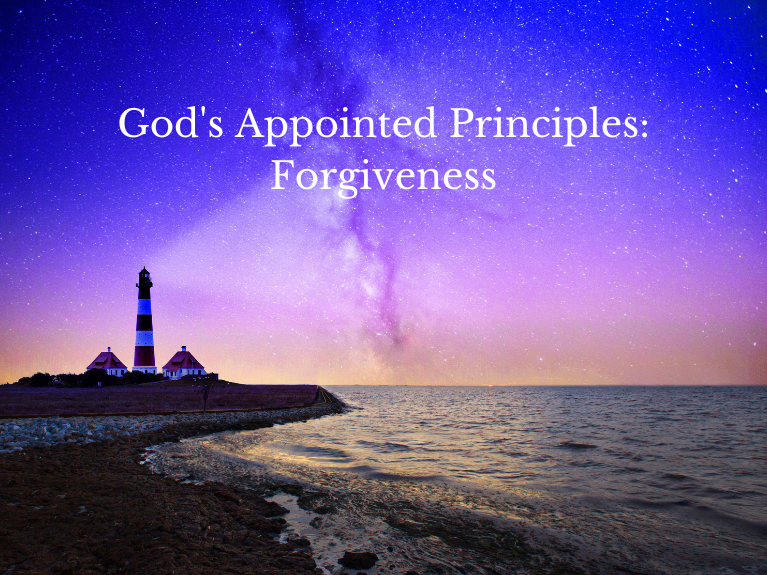Forgiveness
How many times have we said, “Forgive me my trespasses as I forgive those who trespass against me”, and have not searched our hearts or asked Jesus if there is someone – or several “someones” – we need to forgive?
Forgiveness is one of the strong points of recovery programs ─ they encourage each participant to make a list of those who have hurt them, knowingly or unknowingly, then to sit down and work through the list. In other words, taking the time to really do a thorough job of forgiving and “wiping the slate clean”.
Why is this so important? Because there is a clear word – a command – that we need to do it. Because there is a clear word that if we don’t, then we’re not forgiven. Because we can see that holding on to unforgiveness is a real block to healing and wholeness. Because we are giving the enemy a place in our lives when we stay trapped, carrying a load we were not meant to bear. Because if we don’t forgive, the person who hurt us is still controlling our thoughts and our emotions.
The basic truth is that forgiveness is the most selfish thing we can do, because it frees us and puts us in a position to receive blessings of healing, freedom and joy as we escape bitterness.
There are two kinds of forgiveness in the Bible. The obvious one is that we are forgiven for all our sins when we become a follower of Jesus and make Him King in our lives. It’s God’s promise not to count our sins against us. It requires repentance on our part, turning away from our old life of sin and putting our faith in Jesus Christ. It is generally defined as a conscious, deliberate decision to release feelings of resentment or vengeance toward a person, or group of people, who have done us harm.
The second kind is human forgiveness, which is a reflection of our understanding of God’s forgiveness. Love, and not simply following a rule, is the motivation behind God’s forgiveness of us and our subsequent forgiveness of others.
Just as important as defining what forgiveness is, is understanding what it is not. It’s not simply glossing over the pain or the seriousness of the offense. It often means a repair of a damaged relationship, but it does not obligate us to resume a relationship that is abusive or dangerous.
Forgiveness is not a feeling, but rather a choice that we make to be obedient to God’s word, which always points us to actions that keep us safe and under His protective umbrella.
Forgiveness is not an option ─ it is a command from God.
Mark 11:25 says, “When you are praying, first forgive anyone you are holding a grudge against so that your Heavenly Father will forgive your sins, too.”
Here’s the work that each one of us needs to do:
Pray and ask God to remind you of the people you need to forgive, whether the offense is something that happened today or years ago, then make a list of the names He brings to your mind. You then need to forgive each one of them, by name, by saying:
“In the Name of Jesus, I forgive _____________ for ______________, which made me feel . I forgive and release ____________ into blessings. I rejoice that I no longer will carry this burden”.
After this, you need to sever and cancel any judgments you may have made on the person you are forgiving by saying:
“I repent for judging _____________. I sever the judgement. I call it null and void. And I bind every demonic power that has been assigned to carry out the judgement in Jesus’ Name”.
The next step will be to break soul and spirit ties with that person.
Soul and spirit ties can be formed by sexual involvement, drug use/sharing of needles, and, often, by giving someone unrighteous authority in our lives. This involves repenting of any sins you have done, renouncing any covenants or contracts made, and then breaking the ungodly soul or spirit tie by saying:
“In the name of Jesus, I break every ungodly soul and spirit tie with ________. I return to ______ all that is his/hers/theirs and take back all that is mine, cleansed by the Blood of the Lamb.”
Don’t hesitate! Make that list and get free as you free others. And once done, keep that list short going forward. Forgive as hurts and offenses crop up. Take a look at the Scriptures and resources. Consider too, what it means to be unoffendable!
Did you know that the word for offense in Greek is skandalon, which was the part of a trap on which people put a piece of meat to trap animals? Is that what satan does? Puts out that bait to see if you will take it? Whoops! That may be another GAP!

